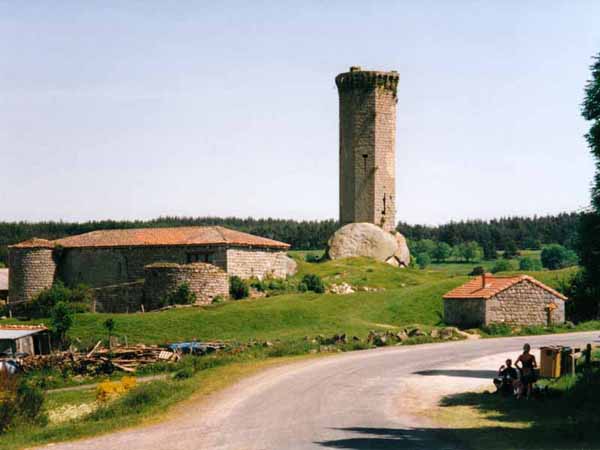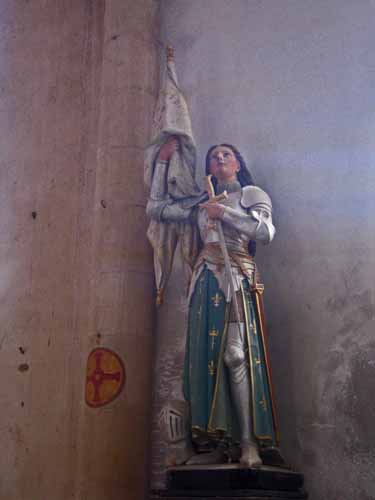It is not possible to travel in France without constantly encountering reminders of the Hundred Years’ War (la Guerre de Cent Ans), which raged intermittently from 1337 until 1453.
This was really a series of conquests and reconquests, punctuated by occasional periods of peace, the sort of thing that Alan Bennett must have had in mind when he defined history as “one bloody thing after another”.
It was essentially a dynastic dispute between two royal houses for possession of the French throne, following the extinction of the main Capetian line. The house of Valois opposed the house of Plantagenet, which was largely English but which had support from the French duchies of Anjou, Aquitaine and Burgundy.
Initially the French had naval superiority but later the English, aided by the newly-invented longbow, made great incursions into French territory.
However their gains were never secure and by 1453 the English had lost all their lands in France (see Map). During this period many new towns, or bastides, were established, especially in the south-west, in an effort to establish ownership of disputed territory.
One of the most famous episodes in the Hundred Years’ War was the siege of Orléans by the English in 1429, at the height of their dominance. A young peasant girl, Joan of Arc, fired by a divine mission, inflamed the demoralised French troops to break the siege. Joan was captured soon after by the Burgundians and sold to the English, to be burned at the stake at the age of 18. But it was all downhill from there for the English.
All through this long-drawn-out conflict, the French population suffered greatly. Not only did they endure battles, sieges and famines, but the Black Death arrived in 1348, wiping out whole communities, and armies of pillaging mercenaries roamed the land unchecked. The population of France fell to a third of its former level.
The lasting result of the Hundred Years’ War was a clearer sense of both English and French nationalism. In England, French ceased to be the official language and people began to understand that they were an island nation, dependent on their navy for power.

